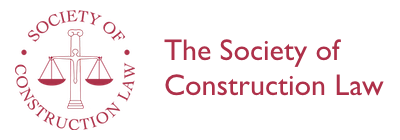How should delay be analysed - Dominant cause and its relevance to concurrent delay
Jeremy Winter
January 2009
A paper presented to the SCL International Conference held in London, 6th-7th October 2008.
Jeremy Winter's paper, prepared for the SCL International Construction Law Conference in London in October 2008, looks in some detail at the decision of Lord Drummond Young in City Inn Ltd v Shepherd Construction Ltd heard in the Scottish Outer House, Court of Session in 2007. The author looks first at the facts of the case and then the judge's consideration of the case law, quoting extensively from the judgment and the cases referred to (which include Percy Bilton, Peak v McKinney, Chestermount Properties, Malmaison Hotel, Royal Brompton Hospital,Wells v Army and Navy and SMK Cabinets). The author then quotes the judge's conclusions at some length before commenting on whether the judge correctly summarised the law and/or correctly applied it.
Introduction - Key facts and the delays - The judge's summary of the law on concurrent delay - The judge's review of the expert and factual evidence - Tying together the evidence and the law - Dominant cause test - Conclusions on the judge's application of the law to the facts - The use of technology in delay analysis - Overall conclusions.
The author: Jeremy Winter is a partner in Baker & Mackenzie LLP.
Text: 20 pages.
PDF file size: 322k
